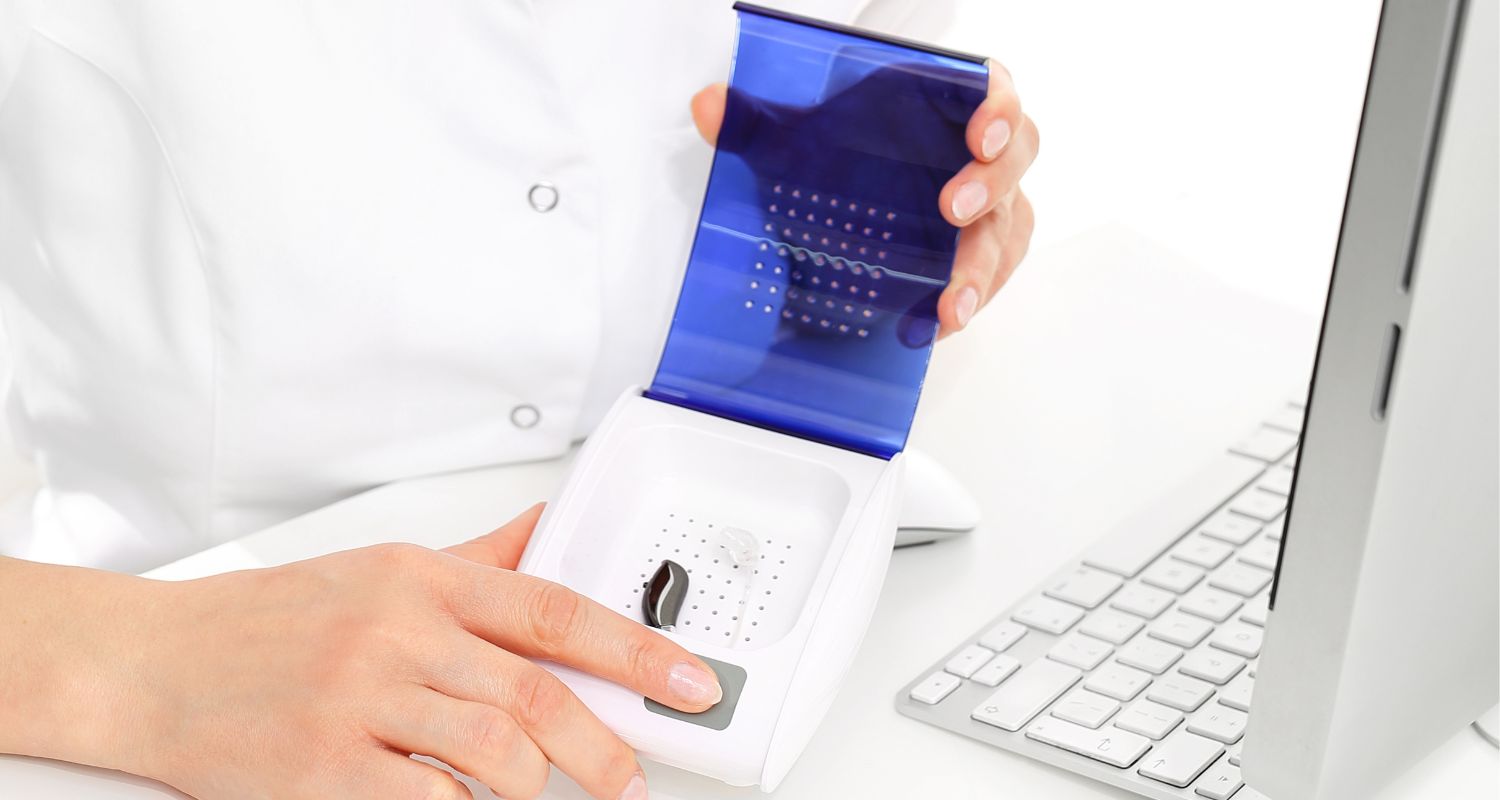Keep Your Hearing Aids Safe and Dry, Moisture’s Threat to Your Devices

As a hearing professional, we know how vital hearing aids are to those with hearing loss. They can dramatically improve the quality of life for those who use them. But hearing aids are delicate devices that require proper maintenance and care, especially when it comes to moisture. Moisture is a hearing aid’s worst enemy, and it’s something that every hearing aid user needs to be aware of. In this article, we’ll discuss why moisture is such a concern and offer some tips on how to keep your hearing aids dry.
Why Moisture is a Concern for Hearing Aids
Moisture is a significant concern for hearing aids because it can damage the delicate electronic components inside the device. Moisture can corrode metal contacts, cause the battery to malfunction, and short out circuits, rendering the device useless. Moisture can also cause the hearing aid’s microphone and speaker to malfunction, leading to poor sound quality or no sound at all.
Moisture can enter the hearing aid through various ways, including:
- Sweat
- Humidity
- Rain or snow
- Water splashes
- Accidental immersion in water
Moisture can be particularly problematic for hearing aids as they are often worn close to the body, which means they are exposed to sweat and humidity. Additionally, many people wear hearing aids while exercising, which can cause excessive sweating and increase the risk of moisture damage.
Tips for Keeping Your Hearing Aids Dry
Fortunately, there are several things you can do to keep your hearing aids dry and avoid moisture damage. Here are some tips:
Invest in a dehumidifier
A dehumidifier is a device that removes moisture from the air. It can be beneficial for hearing aid users to invest in a dehumidifier specifically designed for hearing aids. These devices can help remove excess moisture from the hearing aids, reducing the risk of damage. If you don’t have a dehumidifier, leaving your hearing aids in a dry place, such as a cupboard or drawer, can also help.
Use a hearing aid dryer
A hearing aid dryer is another device that can help remove moisture from the hearing aids. These devices use a combination of heat and desiccants to remove moisture. Hearing aid dryers are particularly useful for those who live in humid climates or who sweat excessively.
Avoid getting your hearing aids wet
As obvious as it may seem, it’s crucial to avoid getting your hearing aids wet. This means taking them off before showering or swimming and being mindful of water splashes while washing your face or hands. If your hearing aids do get wet, remove the battery and allow them to dry out completely before using them again.
Wipe down your hearing aids regularly
Wiping down your hearing aids regularly can help remove any moisture or sweat that may have accumulated on them. Use a soft, dry cloth to wipe down the hearing aids, and be sure to clean all the nooks and crannies where moisture can accumulate.
Keep spare parts on hand
Accidents happen, and sometimes hearing aids can get damaged despite our best efforts. It’s a good idea to keep spare parts on hand, such as batteries, tubing, and domes. This way, if your hearing aids do get damaged, you can quickly replace the damaged parts and keep using your hearing aids.
Don’t let moisture damage your hearing aids or put your hearing at risk. Contact us today to schedule a hearing test and learn more about how we can help you improve your hearing and stay dry. Our team of dedicated hearing professionals is here to provide the care and support you need to live life to the fullest.
At our hearing practice, we offer a wide range of hearing aids and services to help you improve your hearing and stay dry. Contact us today to schedule a hearing test and learn more about how we can help you take control of your hearing health.
